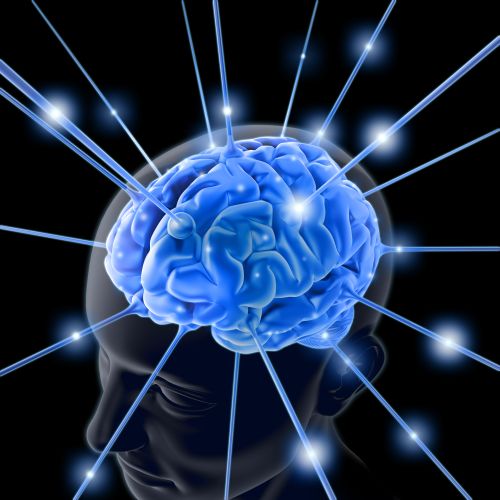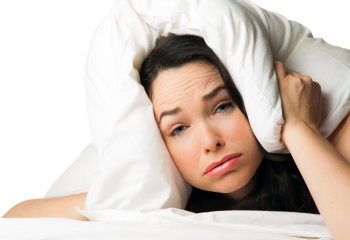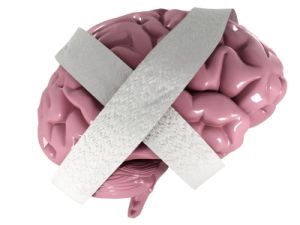I’m telling you a secret: “Eat one tablespoon of honey before bedtime! It’s one of the best foods that fuel your brain over night.”
Ron Fessenden, MD, MPH, in his latest book “The New Honey Revolution” shared this secret with the whole world: Take honey just before sleep, and you will feed the king of your organs: the brain.
How do you sleep better?
If your brain is relaxed, you will be relaxed. For this, you need to first feed your brain so it can do its jobs in peace, while the rest of your body rests. (ok, this one not in peace. 🙂 )
What fuels the brain?
1. The glucose found in the circulating blood. Our blood sugar. We all have about 5 liters of blood and 5 grams of sugar in it. But the brain is not the only organ consuming the blood sugar in our body. And even if it was only it taking it all, it will be enough for 1 hour, the most.
The brain burns amino acids from proteins and lactic acid, but these are in short supply in circulation. In extreme starvation situations, when liver glycogen and blood glucose are exhausted, it can burn fat to survive. After this is over, it will enter a coma stage to protect itself.
2. The glycogen from our liver. The main fuel source.
When we eat, the brain is fed as well. But the brain is an organ that doesn’t store, so what is it going to do between meals, during night sleep, or during physical exercises when the demands are growing? The liver is helping it. It produces glycogen, which offers the necessary fuel.
How is glycogen made?
The liver makes glycogen from 2 ingredients, which must be in an equal ratio. HONEY is a food that contains those two ingredients, fructose and glucose, in the perfect ratio of 1:1. It is understandable, then, why it produces more liver glycogen per gram than any other food.
 The liver makes glycogen and stores it. Its storage capacity is about 75 grams. Of course, it can be bigger for a bigger person. It weighs somewhere between 60 and 110 grams. In the rest of the time, like during the night, the liver releases like 10 grams per hour, to the brain, red blood cells, and kidneys. 6.5 grams go to the brain, and 3.5 grams go to the kidneys and red blood cells. The brain will last on this fuel for between 6 and 8 hours, meaning our period of night sleep.
The liver makes glycogen and stores it. Its storage capacity is about 75 grams. Of course, it can be bigger for a bigger person. It weighs somewhere between 60 and 110 grams. In the rest of the time, like during the night, the liver releases like 10 grams per hour, to the brain, red blood cells, and kidneys. 6.5 grams go to the brain, and 3.5 grams go to the kidneys and red blood cells. The brain will last on this fuel for between 6 and 8 hours, meaning our period of night sleep.
It gets obvious then, that the moment we go to bed, our liver should have its storage full, so it can supply first the brain and then the others, with glycogen.
There are foods that, despite being sweet, DO NOT RAISE the blood sugar, but are turned directly into glycogen, by our liver. Why? Because they contain fairly equal amounts of fructose and glucose, exactly what the liver needs to make glycogen. It takes them both, makes glycogen, and there is no glucose left to raise the blood sugar.
These amazing foods are: fruits, some vegetables, and honey.
Isn’t the food we eat enough for the brain?
It is. At least during daytime. If we eat correctly, have two main meals and 2 snacks, varied, healthy and less processed. (But in our tumultuous daily lives, things are different.) The brain takes its liver glycogen from the food we eat.
What happens over night?
Lately so many diets are telling us not to eat in the evening. Or eat a salad, or a yogurt. Will our liver make 75 grams of glycogen out of yogurt? Not even close! So what is going to happen? The brain will get the message from the liver: no more glycogen.
What does the brain do? Initiates a protective measure called “metabolic stress”. It will trigger the stress hormones, adrenalin and cortisol, which will wake us up and send us to eat. So we eat again.
Night after night, this will turn into what is called “chronic brain starvation“.
Metabolic stress is not a disease. It’s a normal reaction of the body, that detects when something is wrong and reacts, so that balance is achieved again. But if this repeats too often, for too long, night after night, some real diseases will show up their ugly faces.
 Isn’t the brain sleeping at night, like the whole body?
Isn’t the brain sleeping at night, like the whole body?
No. There are even some new studies telling us that the brain is more awake during the night than it is during the day. We go to sleep but our brain goes to work.
It will take a lot of energy to do that.
So, what if we wake up in the night and eat a little?
Is not only that we eat a little. The brain crying for help translates into this metabolic stress. During it, the adrenal glands will release stress hormones, adrenalin and cortisol, which will affect the entire body and wake us up to eat. When this metabolic stress is repeated too many times, it will affect almost every organ in our body.
This leads to interrelated conditions affecting all our body, producing from sleep deprivation, fatigue, weight gain, to depression, glucose intolerance, type 2 diabetes, increased blood pressure, atherosclerosis, cardiovascular diseases, thyroid disease, neuropathy, Alzheimer’s and so on.
The solution?
Take 2 spoons of honey before bedtime
The solution is simple and inexpensive. One or two tablespoons of honey just before bedtime. Try it with 1 tablespoon first and see how it works for you. For me, it was too much. I weigh 60 kg. I took 1 tablespoon of blended honey and I fell asleep after 1 hour, and I was almost conscious during all my dreams. My brain was fueled, all right! The next night, I took only one teaspoon and it was perfect. Slept like a baby. The liver’s capacity of storage depends on many things, including body weight, age, health, etc. We must find our suitable amount of honey.
What makes honey that good?
Honey has fructose and glucose in an almost equal ratio of 1:1 (depending on the type of honey), the perfect way for our liver to turn it immediately into glycogen, our brain’s fuel. If the honey had only glucose, it would have gone into our blood, without liver intervention.
A tablespoon of honey (21 g) contains about 7.5 grams of glucose and 8.6 grams of fructose. Just like in an apple.
From these quantities, almost 17 grams of glycogen will be produced by our liver.
Two tablespoons of honey will then make almost 34 grams of glycogen.
Considering we had our dinner two or three hours before bedtime, our liver still has some glycogen storage enough for couple of hours, meaning it is half full. Supplementing it with another 35 grams of glycogen from 2 tablespoons of honey, would be enough to supply the brain, kidneys and red blood cells for 7 or 8 hours of sleep.
Aren’t other foods good for this?
They are. But they also have side effects. Honey doesn’t.
Other foods that contain fructose and glucose in an almost equal ratio, are fruits and some vegetables.
Eating them right before bedtime would mean waking up the entire digestive system to process them in a time when it should just “rest”.
Also, some vegetables contain starch, which is rapidly converted into glucose, raises blood sugar, triggers the release of insulin, and makes glucose enter the muscle cells, thus not being available for the brain. In a few hours, the blood sugar level drops and there is again metabolic stress.
Be careful! Too much of something good is still too much!
It’s the golden rule again. Be balanced! Even if a food is that good, too much of it makes it not good at all.
If we eat too much honey, the liver will convert the fructose and glucose into glycogen till it fills up its storage. The rest will have different roads.
The liver is the only organ that can metabolize fructose. To get rid of the rest, it will break it down into three-carbon molecules, which will enter the fatty acids and be carried to fat cells for storage. Today many of our modern diseases like obesity, type 2 diabetes, and high blood pressure, are associated with a high level of fructose.
The rest of the glucose will raise blood sugar, demanding lots of insulin, which will drive the glucose into the muscles and fat cells, where it will be stored as fat. Again.
Conclusion:
Our brain doesn’t sleep over night, like we do. It still needs energy, which comes from liver glycogen. Honey is easily turned into glycogen and ensures the liver’s storage, so that it fuels the brain throughout the entire night.
Supplement your diet with honey. Take 1 to 2 tablespoons of raw honey just before bedtime. (It is hard today to find raw organic honey, but you must at least use raw!)
It will improve your sleep, your recovery physiology, eliminate or improve metabolic stress and all the potential diseases that may occur because of this.
It is not claimed that “brain starvation” over night is the only factor that leads to metabolic stress. Genes are important, internal balance is important, as are emotional stress and overall life-style. But physically assuring that our brain has enough fuel over night, improves our body functionality and even cures dysfunctional systems. A content brain will be able to manage the other organs in peace.
If you have any experience with eating honey before bedtime, do leave a comment here.
Also, don’t forget to spread the secret and we will help each other improve our overall health and spirit. Or, as Dr Fessenden says, be part of the Honey Revolution! Use the kindle version of this book and find out more details from the author himself: The New Honey Revolution: Restoring the Health of Future Generations, available on Amazon.
Related articles:
• Sleep disorders cures
• Honey and Alzheimer’s natural treatment
• Bee venom a possible natural treatment for Parkinson’s disease
• Bee venom for therapy: Alzheimer’s disease
==============
References:
Ronald Fessenden, MD, MPH, The New Honey Revolution, published by TGBTGBooks.com, May 2014
picture source:
“Girl telling a secret” picture credit dolgachov via bigstockphoto.com
liver picture credit guniita, via bigstockphoto.com
brain picture credit ktsdesign via bigstockphoto.com




